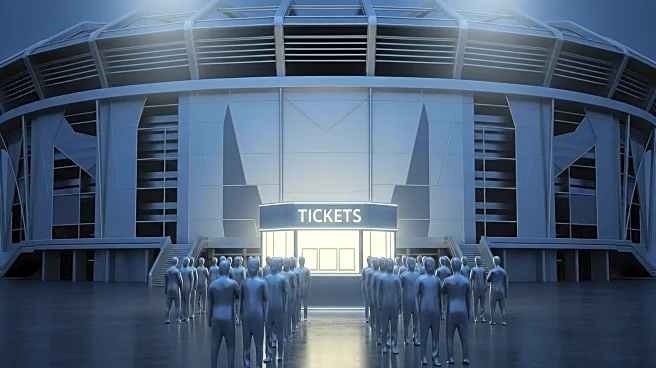What is the story about?
What's Happening?
FIFA has officially commenced ticket sales for the 2026 World Cup, which will be hosted by the United States, Canada, and Mexico. Despite the fact that less than half of the 48-team field has been finalized and the match schedule will not be confirmed until December, there is significant global interest. A lottery held last month saw 4.5 million applicants vying for the chance to purchase tickets, with winners being notified via email. Ticket prices range from $60 for group-stage matches to $6,730 for the final, with dynamic pricing expected to adjust these figures. Additionally, American Airlines and Verizon are offering alternative ways to secure tickets through loyalty programs and promotions.
Why It's Important?
The 2026 World Cup is set to be the largest in history, with 104 matches across 16 venues in North America. This event is not only a major sporting occasion but also a significant economic opportunity for the host nations, particularly the U.S. The influx of international visitors could boost local economies, although there are concerns about the impact of current U.S. immigration policies on attendance. The event also serves as a unifying force in a time of global division, with FIFA President Gianni Infantino highlighting the unifying power of soccer. The high demand for tickets underscores the global passion for the sport and the anticipation surrounding this expanded tournament.
What's Next?
Following the initial ticket sales phase, a second phase called the early ticket draw is expected to occur from October 27-31, with purchase slots available from mid-November to early December. A third phase, the random selection draw, will follow the final team draw on December 5. Tickets will also be available on a first-come, first-served basis closer to the tournament, and FIFA plans to launch an official resale platform. The tournament is scheduled to run from June 11 to July 19, 2026.
Beyond the Headlines
The 2026 World Cup presents logistical challenges, including visa requirements for international visitors amid a U.S. immigration crackdown. Additionally, political dynamics, such as President Trump's comments on potentially changing host cities for safety reasons, could influence the event's planning and execution. The tournament's success will depend on effective coordination among the host nations and the ability to address these challenges.
















